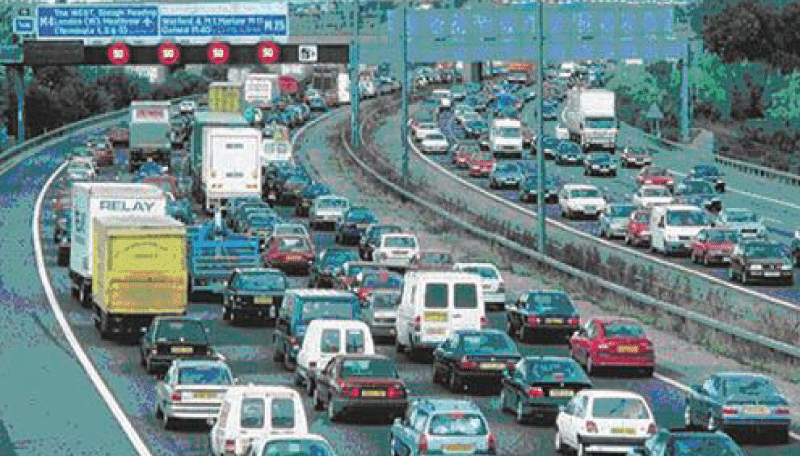Smart Mobility and Sensor-Based BRT Revolution: Challenges for Auto Mechanics and Technicians in Africa
Smart Mobility and Sensor-Based BRT Systems: Challenges for Auto Mechanics in Africa
Urbanization is transforming transportation worldwide, with Smart Mobility and Sensor-Based Bus Rapid Transit (BRT) systems leading the charge in sustainable urban transport. These innovations promise reduced carbon emissions, improved efficiency, and enhanced commuter experience. However, in Africa, this technological leap presents significant challenges for auto mechanics and technicians who are often unprepared to manage and maintain such advanced systems.
This blog explores the findings from IGMIN Research Article #198, highlighting the state of auto-mechanic readiness in Africa and the road ahead for sustainable BRT systems.
The Importance of Smart Mobility
Smart Mobility is a key pillar of sustainable urbanization, integrating technology into transportation systems to optimize efficiency, reduce environmental impact, and improve quality of life. Sensor-Based BRT systems are a hallmark of this shift, incorporating features such as:
- Smart Fare Collection: Systems using contactless cards or mobile payments for seamless transactions.
- Automatic Vehicle Location (AVL): Real-time GPS tracking for operational efficiency.
- Safety Enhancements: Sensor-based collision avoidance and driver alert systems.
- Eco-Friendly Technologies: Hybrid or electric buses for reduced carbon emissions.
These advancements align with global efforts, such as the COP28 emission reduction targets, to create sustainable urban mobility solutions.
BRT Systems in Africa: A Growing Need
African cities are grappling with rapid urbanization, resulting in traffic congestion, pollution, and inefficient public transport systems. Bus Rapid Transit (BRT) offers a viable solution, with benefits such as dedicated lanes, modern buses, and intelligent transport systems (ITS). However, implementing BRT in Africa faces unique challenges:
- Technological Adaptation: Advanced BRT systems require high-tech infrastructure, which is often lacking.
- Maintenance Expertise: Local auto mechanics are largely untrained in modern vehicle technologies.
- Cost Constraints: Funding for BRT implementation and maintenance is limited in many African nations.
Challenges for Auto Mechanics and Technicians
The success of sensor-based BRT systems hinges on the competence of local auto mechanics and technicians. Unfortunately, in many African countries, the skill gap is significant:
Skill Gaps and Training Deficiencies
- Lack of Formal Training: Most mechanics learn through apprenticeships on outdated vehicle models, leaving them ill-equipped for modern hybrid and electric buses.
- Insufficient Diagnostic Tools: Mechanics often rely on manual techniques, unable to troubleshoot advanced sensor-based systems.
- No Certification Standards: The absence of standardized certifications means varying levels of competence across mechanics.
Impact on BRT Sustainability
The lack of skilled mechanics has led to several operational issues:
- Abandoned vehicles due to unresolvable faults.
- Over-reliance on expensive multinational workshops.
- Increased downtime and inefficiency in BRT operations.
Case Study: BRT in Nigeria
Nigeria’s experience with BRT systems highlights the challenges and opportunities of Smart Mobility in Africa. Initial implementations in cities like Abuja revealed significant issues, including:
- Poor maintenance of imported luxury buses due to inadequate local expertise.
- Limited investment in Intelligent Transport Systems (ITS) infrastructure.
- High operational costs, making the system unsustainable.
Path Forward: Bridging the Skill Gap
To ensure the success of Smart Mobility and BRT systems in Africa, a multi-faceted approach is needed:
1. Capacity Building for Mechanics
- Certification Programs: Short-term courses and certifications in hybrid and sensor-based technologies can upskill local mechanics.
- Partnerships with Manufacturers: Collaborations with vehicle manufacturers to train technicians on modern systems.
- Government Support: Policies to fund and regulate skill development programs for auto mechanics.
2. Investing in ITS Infrastructure
- Modern BRT systems require supporting infrastructure, such as smart fare collection systems, GPS-based vehicle tracking, and automated lane enforcement technologies.
- Governments must prioritize ITS investments to ensure BRT systems operate efficiently.
3. Promoting Local Innovation
- Encourage local entrepreneurs to develop solutions tailored to African urban transport challenges.
- Support research and development in hybrid and electric vehicle technologies.
4. Sustainable Financing Models
- Public-private partnerships (PPPs) can provide the funding necessary to implement and sustain BRT systems.
- Subsidies for maintenance training programs and diagnostic tools can lower costs for local mechanics.
Future Outlook
The integration of Smart Mobility and BRT systems in Africa offers immense potential to revolutionize urban transport. However, this transition requires a concerted effort to address skill gaps and infrastructure deficits.
Benefits of Successful Implementation
- Reduced traffic congestion and pollution.
- Enhanced commuter experience through reliable and efficient public transport.
- Economic growth driven by improved connectivity and reduced operational costs.
Global Lessons for Local Solutions
African nations can draw lessons from successful BRT implementations in cities like Bogotá, Colombia, and Curitiba, Brazil, where robust training programs and ITS infrastructure underpin system sustainability.
Conclusion
Smart Mobility and Sensor-Based BRT systems represent the future of urban transport in Africa. However, realizing this vision requires bridging the skills gap among auto mechanics and investing in supportive infrastructure. Policymakers, industry stakeholders, and educational institutions must collaborate to create a sustainable, skilled workforce capable of managing these advanced systems.
By aligning with global trends and addressing local challenges, Africa can leverage Smart Mobility to create efficient, sustainable urban transport solutions that improve lives and protect the environment.
Tags
- Smart Mobility
- Bus Rapid Transit
- Sensor-Based Transport
- Hybrid Vehicles
- Auto Mechanics in Africa
- Urban Transportation
- Intelligent Transport Systems
- Sustainable Mobility
- Skill Development
- BRT Challenges in Africa

Traffic gridlock in Nigeria Source: Dukiya
